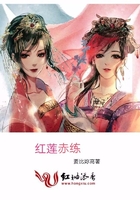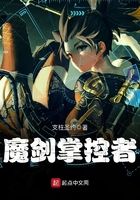THE WORSHIP of the Great Mother of the Gods and her lover or son was very popular under the Roman Empire. Inscriptions prove that the two received divine honours, separately or conjointly, not only in Italy, and especially at Rome, but also in the provinces, particularly in Africa, Spain, Portugal, France, Germany, and Bulgaria. Their worship survived the establishment of Christianity by Constantine; for Symmachus records the recurrence of the festival of the Great Mother, and in the days of Augustine her effeminate priests still paraded the streets and squares of Carthage with whitened faces, scented hair, and mincing gait, while, like the mendicant friars of the Middle Ages, they begged alms from the passers-by. In Greece, on the other hand, the bloody orgies of the Asiatic goddess and her consort appear to have found little favour. The barbarous and cruel character of the worship, with its frantic excesses, was doubtless repugnant to the good taste and humanity of the Greeks, who seem to have preferred the kindred but gentler rites of Adonis. Yet the same features which shocked and repelled the Greeks may have positively attracted the less refined Romans and barbarians of the West. The ecstatic frenzies, which were mistaken for divine inspiration, the mangling of the body, the theory of a new birth and the remission of sins through the shedding of blood, have all their origin in savagery, and they naturally appealed to peoples in whom the savage instincts were still strong. Their true character was indeed often disguised under a decent veil of allegorical or philosophical interpretation, which probably sufficed to impose upon the rapt and enthusiastic worshippers, reconciling even the more cultivated of them to things which otherwise must have filled them with horror and disgust.
The religion of the Great Mother, with its curious blending of crude savagery with spiritual aspirations, was only one of a multitude of similar Oriental faiths which in the later days of paganism spread over the Roman Empire, and by saturating the European peoples with alien ideals of life gradually undermined the whole fabric of ancient civilisation. Greek and Roman society was built on the conception of the subordination of the individual to the community, of the citizen to the state; it set the safety of the commonwealth, as the supreme aim of conduct, above the safety of the individual whether in this world or in the world to come. Trained from infancy in this unselfish ideal, the citizens devoted their lives to the public service and were ready to lay them down for the common good; or if they shrank from the supreme sacrifice, it never occurred to them that they acted otherwise than basely in preferring their personal existence to the interests of their country. All this was changed by the spread of Oriental religions which inculcated the communion of the soul with God and its eternal salvation as the only objects worth living for, objects in comparison with which the prosperity and even the existence of the state sank into insignificance. The inevitable result of this selfish and immoral doctrine was to withdraw the devotee more and more from the public service, to concentrate his thoughts on his own spiritual emotions, and to breed in him a contempt for the present life which he regarded merely as a probation for a better and an eternal. The saint and the recluse, disdainful of earth and rapt in ecstatic contemplation of heaven, became in popular opinion the highest ideal of humanity, displacing the old ideal of the patriot and hero who, forgetful of self, lives and is ready to die for the good of his country. The earthly city seemed poor and contemptible to men whose eyes beheld the City of God coming in the clouds of heaven. Thus the centre of gravity, so to say, was shifted from the present to a future life, and however much the other world may have gained, there can be little doubt that this one lost heavily by the change. A general disintegration of the body politic set in. The ties of the state and the family were loosened: the structure of society tended to resolve itself into its individual elements and thereby to relapse into barbarism; for civilisation is only possible through the active co-operation of the citizens and their willingness to subordinate their private interests to the common good. Men refused to defend their country and even to continue their kind. In their anxiety to save their own souls and the souls of others, they were content to leave the material world, which they identified with the principle of evil, to perish around them. This obsession lasted for a thousand years.
The revival of Roman law, of the Aristotelian philosophy, of ancient art and literature at the close of the Middle Ages, marked the return of Europe to native ideals of life and conduct, to saner, manlier views of the world. The long halt in the march of civilisation was over. The tide of Oriental invasion had turned at last. It is ebbing still.















